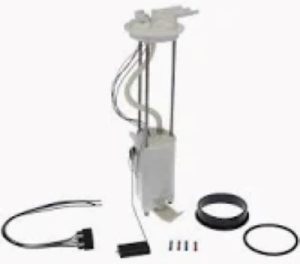Bad Fuel Pump — Your fuel economy could go down by up to 20-30% with a bad Fuel Pump. The Fuel Pump works to provide the correct pressure of fuel which is usually between 30 -80 psi for many cars, from the tank area into the Engine. If the Fuel Pump fails, inefficient delivery of gas to your car's cylinders may make it difficult to generate power. Low fuel pressure rates in the system can lead the engine to go lean where less amount of gas is being fed to the motor and will require extra efforts from it and thereby have to consume more fuel just in order to keep up with power.
Another one that can come as a result of bad Fuel Pump affecting fuel economy is frequent stalling/sputtering, often accompanied by struggles during acceleration or when you are cruising the freeway at a high pace. The inconsistent fuel delivery causes the engine to offset NOX, which in turn creates performance problem ~> Solution is to re'design the Fuel injection rates based on this pressure concept. This inefficiency adds up over time, eventually lowering your miles per gallon (MPG) and forcing you to pay more money on fuel.
A 2018 study from the U.S. Department of Energy reported that fuel system malfunctions, which included bad Fuel Pumps contributed to a 15% drop in fuel efficiency among shattered automobiles. The declining efficiency is usually realized when drivers begin going to the pump more frequently than they once did.

An additional reason your gas mileage might be down is that a weak Fuel Pump is actually forcing your engine to work harder. If the pump is on its last legs, you may find that the engine runs richer as more fuel ends up being injected into the combustion chamber than it should. This rich fuel mixture can result in an incense of 10-15% fuel consumption. The inability of the pump to provide sufficient pressure can be so bad even a check engine light will come on as the ECU detects a fuel delivery problem
One recent example of such a problem was in 2020 when General Motors had to recall more than 200,000 vehicles for Fuel Pump defects that led to stalling and poor fuel economy. The massive recall brought into the spotlight a glaringly obvious, but until now largely ignored issue: Fuel Pump performance is directly related to the overall efficiency of your vehicle.
Regular maintenance is a must to prevent the bad Fuel Pump from impacting the fuel economy. This, in turn, means replacing fuel filters on a schedule of 20,000 to 30,000 miles and using high-quality fuels to prevent clogging or wear. And as the old auto saying goes, "Performance is one thing -- it's gotta be reliable." Maintaining an efficient Fuel Pump is vital for ensuring your car operates in tip-top condition, and Fuel Economy.
Fuel Pump Symptoms can contribute to a sudden drop in your fuel efficiency, along with symptoms like stalling and hard starting, which is why it is important to check the Fuel Pump immediately if you notice them. Grinding Noises: As a Fuel Pump starts to fail, it can emit Grinding noises and adversely affect fuel economy which in turn causes damage to the car engine.
